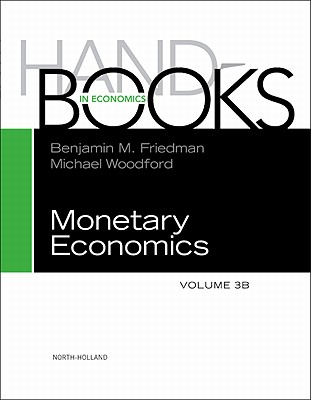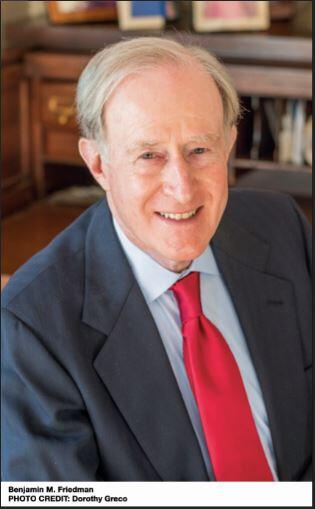

 North-Holland
North-Holland
Handbook of Monetary Economics: Volume 3b


Key Metrics
- Benjamin M Friedman
- North-Holland
- Hardcover
- 9780444534545
- 9.3 X 7.4 X 1.6 inches
- 3.65 pounds
- Business & Economics > Banks & Banking
- English
 Secure Transaction
Secure TransactionBook Description
What are the goals of monetary policy and how are they transmitted?
Top scholars summarize recent evidence on the roles of money in the economy, the effects of information, and the growing importance of nonbank financial institutions. Their investigations lead to questions about standard presumptions about the rationality of asset markets and renewed interest in fiscal-monetary connections. Stopping short of advocating conclusions about the ideal conduct of policy, the authors focus instead on analytical methods and the changing interactions among the ingredients and properties that inform monetary models. The influences between economic performance and monetary policy regimes can be both grand and muted, and this volume clarifies the present state of this continually evolving relationship.
Author Bio
Benjamin M. Friedman is the William Joseph Maier Professor of Political Economy, and formerly Chairman of the Department of Economics, at Harvard University. He joined the Harvard faculty in 1972.
Mr. Friedman’s newest book, to be published by Knopf in January 2021, is Religion and the Rise of Capitalism – a fundamental reassessment of the foundations of current-day economics, showing how religious thinking has shaped economic thinking ever since the beginnings of modern Western economics and how this influence continues to be relevant today especially in the United States. His two other general interest books have been The Moral Consequences of Economic Growth (Knopf) and Day of Reckoning: The Consequences of American Economic Policy Under Reagan and After (Random House).
In addition to these works for the general public, Mr. Friedman has also written and/or edited fourteen other books, and more than 150 articles in professional journals, aimed primarily at economists and economic policymakers. Much of this work has focused on economic policy, and in particular on the role of the financial markets in shaping how monetary and fiscal policies affect overall economic activity. Specific subjects of this work have included the effects of government budget deficits, guidelines for the conduct of U.S. monetary policy, and appropriate policy actions in response to crises in a country's banking or financial system. Mr. Friedman is also a frequent contributor to publications reaching a broader audience, including especially The New York Review of Books.
Mr. Friedman's current professional activities include serving as a director of the Private Export Funding Corporation, a trustee of the Pioneer Funds, and a director of the Council for Economic Education. He was also a long-time director and member of the editorial board of the Encyclopaedia Britannica. He is a fellow of the American Academy of Arts and Sciences and a member of the Council on Foreign Relations.
Mr. Friedman received the A.B., A.M. and Ph.D. degrees in economics from Harvard University; during his graduate study at Harvard he was a Junior Fellow of the Society of Fellows. In addition, he received the M.Sc. degree in economics and politics from King's College, Cambridge (U.K.), where he studied as a Marshall Scholar. Among other distinctions, he has received the George S. Eccles Prize, awarded annually for excellence in writing about economics; the John R. Commons Award, given every two years in recognition of contributions to economics; and the Medal of the Italian Senate.
Source: Harvard University
Videos
No Videos
Community reviews
Write a ReviewNo Community reviews